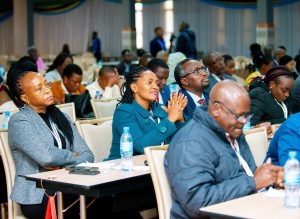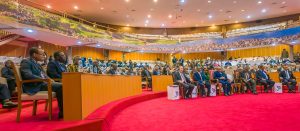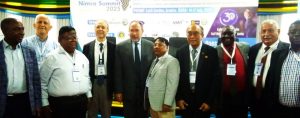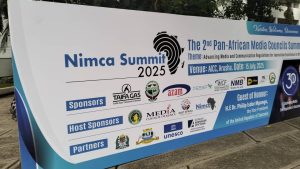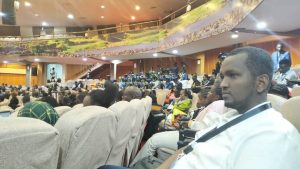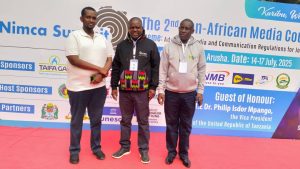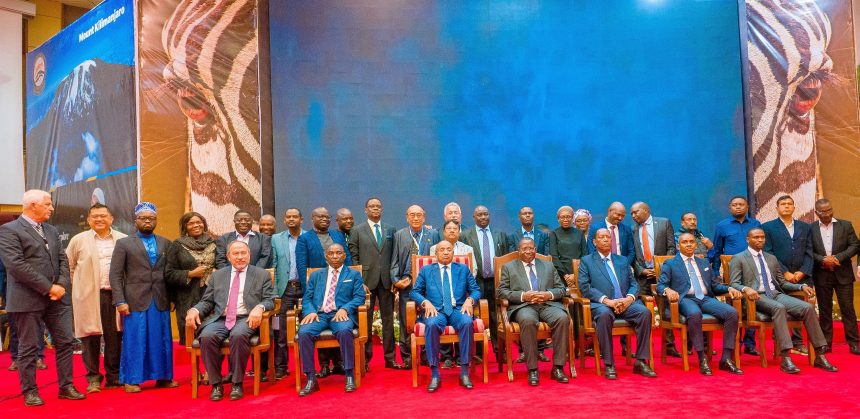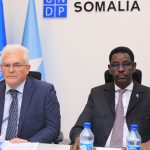Arusha, Tanzania, SONNA – The Federal Republic of Somalia has marked a pivotal moment in its media development, with the Media Council of Somalia (MCS) making its inaugural appearance at the prestigious 2nd Pan-African Media Councils Summit, held in Arusha, Tanzania. This landmark participation signals Somalia’s earnest commitment to fostering a free, independent, and pluralistic media landscape, aligning itself with regional and international standards of journalistic excellence.
The high-profile summit, which ran from July 14 to July 17, 2025, was officially opened by H.E. Dr. Philip Isidor Mpango, Vice President of the United Republic of Tanzania, and gathered media regulators, professionals, and policymakers from across more than 30 African nations, alongside international partners. The central theme, “Advancing Media and Communication Regulations for Journalism Excellence in Africa,” provided a robust framework for discussions on the future of media on the continent.
For the first time in its history, the Media Council of Somalia was present at this crucial gathering, represented by its dedicated official, Abdiqani Abdullahi. This attendance was not merely symbolic; it represented a strategic move towards formal integration into the global media community. During the summit, the Media Council of Somalia was granted observer status, a crucial preliminary step as it progresses with its official application to join both the World Association of Press Councils and the Network of Independent Media Councils in Africa (NIMCA).
Speaking from Arusha, Mr. Abdullahi confirmed that the Media Council of Somalia has formally initiated this vital process, submitting its official request to join these influential international press associations. This action is a clear declaration of Somalia’s intent to embrace international best practices in media regulation, promote ethical journalism, and ensure accountability within its burgeoning media sector. The engagement with these bodies is anticipated to provide the MCS with access to invaluable resources, training, and collaborative opportunities, which are essential for its growth and effectiveness in a rapidly evolving media environment.
Throughout the summit, the representative from the Media Council of Somalia engaged actively with numerous media agencies and prominent leaders from various African nations and international organizations. These engagements were met with a remarkably warm reception, reflecting a widespread willingness to support Somalia’s re-emergence on the global media stage. Such interactions are crucial for building collaborative networks and exchanging knowledge on effective regulatory models, particularly as African media grapples with the complexities of digital transformation, artificial intelligence, and the persistent challenge of misinformation.
Key discussions at the summit revolved around the transformative impact of Artificial Intelligence on journalism, the imperative of data protection and digital privacy, and comprehensive strategies for combating the proliferation of misinformation and disinformation. Panels also explored the necessary evolution of regulatory frameworks to adapt to new technologies while steadfastly upholding media freedom and ensuring content moderation is balanced and fair. Dr. Tawfik Jelassi, UNESCO’s Assistant Director-General for Communications, notably reaffirmed UNESCO’s commitment to work with all Member States in Africa to strengthen media and communication regulations to uphold free, independent, and pluralistic media, a statement that resonates deeply with Somalia’s current trajectory.
Beyond the rich exchange of ideas, the summit also hosted the inaugural Annual General Meeting of NIMCA, which saw significant leadership elections. Phathiswa Magopeni from the Press Council of South Africa was elected as the new Board Chairperson of NIMCA. Further demonstrating the growing influence of African media bodies, David Omwoyo, CEO of the Media Council of Kenya, was elected Chairperson of the World Association of Press Councils, with Ernest Sungura, Executive Secretary of the Media Council of Tanzania and Chairperson of NIMCA, elected as Vice Chairperson.
Somalia’s participation and its proactive steps towards official membership in these international bodies are a powerful affirmation of its dedication to nurturing a robust, responsible, and independent media. This strategic move is poised to enhance the capacity of Somali journalists, strengthen self-regulatory mechanisms, and ultimately contribute to a more informed and engaged citizenry, aligning with the broader pan-African vision of journalism excellence. The observer status marks the beginning of what is hoped to be a fruitful and long-standing association, positioning Somalia firmly within the global dialogue on media freedom and accountability.
